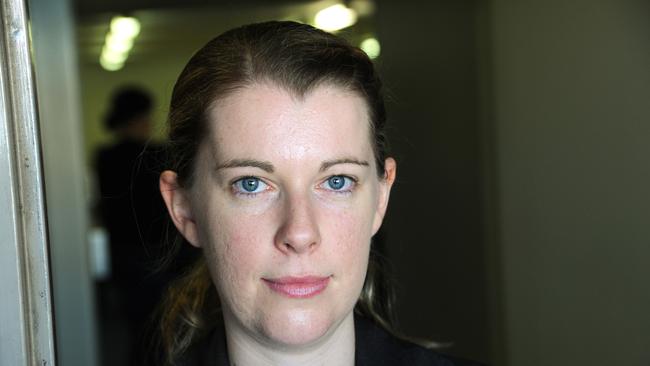Romance scammers target vulnerable Australian women in $60m swindle
Tactics used by romance fraudsters include psychological abuse and coercive control in targeting vulnerable Australian singles.

Love scammers preying on single women through dating apps and social media are fleecing Australian victims of up to $60.5m a year by posing as US military personnel and widowers with children.
The nation’s top cyber experts are investigating tactics used by romance fraudsters, including psychological abuse and coercive control in targeting vulnerable Australian singles.
Amid a rise in high-profile “catfishing” cases, Cyber Security Co-operative Research Centre chief executive Rachael Falk said, “if it’s too good to be true, then chances are it may not be true love”.
The Australian Competition & Consumer Commission revealed this week it received about 4000 dating and romance scam complaints last year, worth almost $30m, but said the financial losses were “just the tip of the iceberg”.
“In 2018, Australians reported losses of $60.5m to romance fraud, up from $42m the year before,” said Ms Falk.
“This was the second-highest category of financial loss, behind investment fraud, and those aged 45 and over suffer the highest amount of financial losses, which is concerning.”
Platforms for confirmed romance scams reported to the ACCC include Instagram, Tinder, Facebook, Twitter, Skype, LinkedIn, Google Hangouts, Words with Friends and eHarmony.
Ms Falk, who leads the federally-funded Cyber Security CRC, said romantic predators were taking advantage of the expanding number of online and dating sites: “What we know is that many offenders will take on the identity of military personnel, usually from the US, or say they are widowed with children, and working overseas.”
Cyber Security CRC senior research fellow Cassandra Cross said analysis of 25 romance fraud cases revealed that “isolation” through psychological abuse was a key tactic of online predators. Last year, women represented more than 75 per cent of all losses officially reported to the ACCC.
People aged between 45 and 64 are considered a high-risk group commonly targeted for grooming and “gaslighting”.
“Offenders can try to remove a victim from family and close networks and try to add an air of secrecy into the relationship they’re developing, advising victims not to talk to friends or family that get in the way of what they have,” Dr Cross said.
She said their research focused on identifying methods to best support and respond to romance fraud cases and warned potential victims to be wary of military personnel profiles.
“I think it works because people are attracted to people in uniform and the social capital of people working in the military works within the desires of those looking for a relationship,” she said.
“The scammers can use security issues and contact people at all or random times of the day and not fit into specific timeframes because of saying they work in the military.”
Romance fraud incidents in Britain and the US have skyrocketed in the past two years, with high-profile cases in Australia exposing the dangers of online dating apps.
Jan Marshall, who set up a Melbourne-based support website Life After Scams for romantic fraud victims, said many cases were going unreported.
She said banks had improved in detecting suspicious transactions and alerting customers, “but the difficulty is that … the scammer is so effective at creating a relationship with the victim that the victim says, ‘no, it can’t be a scam’.”.
Additional reporting: Mark Schliebs





To join the conversation, please log in. Don't have an account? Register
Join the conversation, you are commenting as Logout